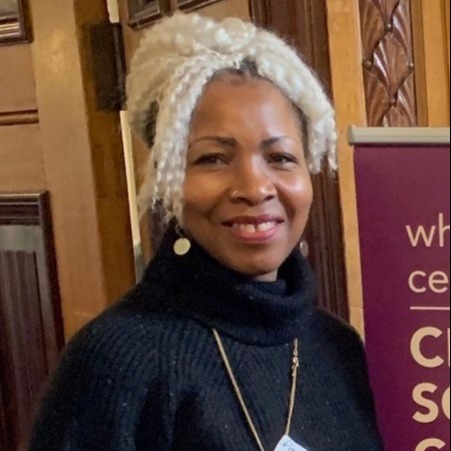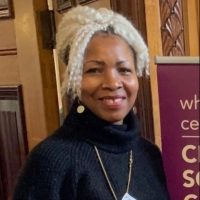The What Works Centre hosted the #iuseevidence movement event in Birmingham on January 30th, with a goal of helping build a movement around the use of evidence in children’s social care. Lyn Gilpin, The Child Protection Chair based in Croydon was one of the attendees, and has written about her experience.
Why did I attend?
Using evidence based practice as a social worker has always been a bit of a bug bear for me … why? Because I am not challenged enough in my practice to use it, question the use of it, how I use it or when I use it.
So I attended the conference to challenge my own practice, and to see how or why my lack of accessing research can be utilised for positive outcomes for children. I want to understand when I revisit the use of evidence what impact it will have on the children I engage with through a CP plan for example. Whether the SW will benefit when encouraged to demonstrate evidence in reports and assessments and how they will engage young people through using evidence based research.
I came to the event to learn more, to return to Croydon with hope and encourage more SWs and to make my learning sustainable. I want my learning to make an impact on my practice and on children and their families I have contact with.
Why is evidence important?
I realise from today’s conference that I need to understand how evidence should be used and can be used as a direct result to drive change. Evidence can strengthen our social care values, drive the commission of appropriate resources for children and families and their communities. Evidence reinforces professional ownership, it highlights social and political division, inequality and biases. It also highlights the lack of reform within Social work.
What were the highlights?
I found I still have a passion for social reform, social change, for a need to have a voice in Social Work. I have the need to strengthen and salute the unsung heroes of Social Work and continue to professionalise the work we all do. I wish to remain curious and focused.
The start of the presentations they took no prisoners and asked the audience when and how do we use research to inform practice? It stopped me and am sure many of the audience in our tracks as it was difficult to answer.
The other highlight was in the group work I was asked to participate in the Family group conference discussion. It highlighted how the resource is under used, but also how it is used greatly in Leeds and Kent and the data is there as a supportive evidence based tool.
My other highlight was the end of the conference where Schwartz Rounds -a model used widely in the US – were introduced. Three practitioners told their story of ‘how a family made an impact on them’. It was a powerful supportive reflective session. I would love to be trained to become a facilitator in Croydon.
Building a movement
These fragile times seem like the right moment for the idea of starting a movement. I found the whole day thought provoking. I was excited at the prospect of returning to Croydon to ask questions, to seek the answers, to find out who else felt full of passion for evidence and research and who wanted to become part of a new dawn.
What we now need is a platform to freely debate & reason with Social workers without boundaries, without restrictions but a focus on a collective agenda for change?


